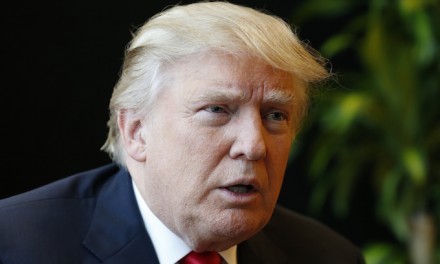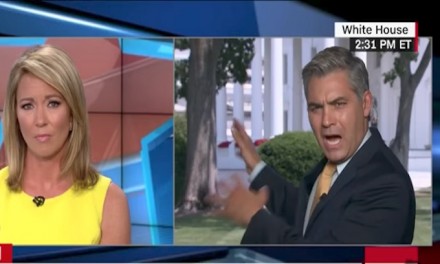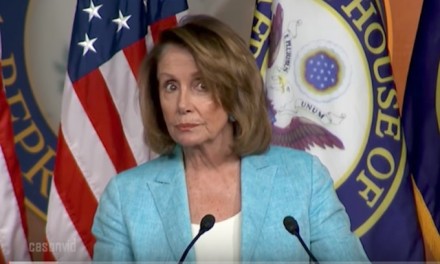After President-elect Donald Trump is inaugurated as the 45th president of the United States on Friday, conservatives in Israel are counting on the new commander-in-chief to bring about a “one-state-solution” in their conflict with the Palestinians.
“In the aftermath of Secretary of State John Kerry’s recent speech defending the United Nations Security Council resolution against Israeli settlements and the Obama administration’s refusal to veto the resolution, Israeli political figures are increasingly mulling the idea of annexing the West Bank and implementing a ‘one-state solution’ during the incoming Donald Trump era,” JNS.org announced.
Two states too idealistic
Jerusalem Post Senior Contributing Editor Caroline Glick maintains that the anti-Israel resolution delivered by the United Nations Security Council on Christmas Eve crushed any hope for a two-state solution.
“The U.N. resolution destroyed any residual chance there might have been to achieve peace with the PLO (Palestine Liberation Organization),” the author of The Israeli Solution: A One-State Plan for Peace in the Middle East explained. “Now they [the Palestinians] have nothing to negotiate about, so they won’t – although I would argue that they wouldn’t have been willing to negotiate anyway.”
It is contended that the Jewish population of Israel agrees that a peaceful two-state solution – of a Jewish State existing alongside another state controlled by the Palestinian Authority (PA) – is virtually impossible at this point. Generally speaking, Israelis are in favor of building Jewish housing in the West Bank and East Jerusalem – and believe that Trump is a much better advocate of the Jewish State than outgoing President Barack Obama.
“The latest Peace Index poll from the Israel Democracy Institute published this week, found that 62 percent of Israel’s Jewish public supports continued settlement building in the disputed territories – including 89 percent of the political ‘Right,’ 83.5 percent of the ‘moderate right,’ 45 percent of the ‘center,’ 21 percent of the ‘moderate Left’ and 15 percent of the Left,” JNS.com’s Ariel Ben Solomon reported. “Regarding Trump, 69 percent of Jews expect the president-elect’s attitude toward Israel to be ‘friendly,’ while 57 percent believe President Barack Obama was ‘unfriendly’ to the Jewish state during his eight years in office.”
Israel’s confidence that Trump will support its right to inhabit certain regions within its own land has been witnessed by the timing of its new plans.
“Israeli Education Minister Naftali Bennett – leader of the nationalist Jewish Home political party – has advocated for a Knesset bill to be introduced after Trump takes office Jan. 20, calling for Israel’s annexation of Ma’ale Adumim, a suburb located east of Jerusalem in the West Bank,” Solomon pointed out. “Bennet sees this as a first step in annexing all of Area C in the West Bank. Under the Oslo II Accord, Israel has full civil and security control over Area C – compared to the full Palestinian Authority (PA) control of Area A and split Israeli-Palestinian control of Area B.”
Shortly after Trump was declared the victor over Democratic presidential nominee Hillary Clinton in November, Bennet publicly announced that the Republican’s win presented “an opportunity” for Israel to put an end to attempts to settle the Israeli-Palestinian conflict via a “two-state solution.”
“Trump’s victory is an opportunity for Israel to immediately retract the notion of a Palestinian state in the center of the country, which would hurt our security and just cause,” the Israeli politician proclaimed. “This is the position of the president-elect – as written in his platform – and it should be our policy … plain and simple.”
A ‘two-state solution’ really workable?
Despite the incessant violence exhibited by the Palestinians against the Jewish State, Israeli Prime Minister Benjamin Netanyahu has continued to voice his support for the establishment of a Palestinian state that is demilitarized and recognizes the existence of the Jewish state of Israel.
Disagreeing with such an optimistic outlook, critics of the “two-state solution” insist that such a proposal is unrealistic –stressing that there is no indication whatsoever that Palestinians will abide by the conditions to make this arrangement possible anytime in the future.
According to Glick, there are two questions that Israel must address regarding any possibility of a future Palestinian state existing alongside Israel.
“The first is what to do with the PLO regime in Judea and Samaria – the Israeli government’s biblical term for the West Bank,” the Israeli-American columnist pointed out. “The second is how to administer the area.”
She maintains that Israel must concentrate on the here-and-now, rather than lofty, politically correct aspirations.
“How Israel answers the first – now that it is clear that the PLO is not moderate and not a peace partner, but Israel’s enemy – will have implications for the second,” Glick continued. “But make no mistake, the discussion is now what to do in the absence of a ‘two-state solution’ – not how to achieve a ‘two-state solution.'”
Safety in one-state solution only
Yoram Ettinger, who formerly served as the minister for congressional affairs at the Israeli Embassy in Washington, D.C., argues that the concern of those who promote the “two-state solution” – who are afraid that a one-state solution would endanger the Jewish character of Israel because of the Arab birthrate – do not have their reasoning based on facts. He discounted the most recent figures published by the Palestinian Central Bureau of Statistics, which alleged that 2.97 million Palestinians live in the West Bank and that 4.88 million inhabit the “state of Palestine” – claims that were made in its report titled “Palestinians at the End of 2016.”
As a member of the American-Israel Demographic Research Group, Ettinger contends that the most accurate and reliable demographic research indicates that the Jewish people form the great majority of Israel’s current population.
“[The most credible demographics indicate that Jews make up 66 percent of the population in Israel and Judea and Samaria,” he informed JNS.org. “There is an unprecedented tailwind in the birthrates for Jews, compared to the Muslim world as a whole – and Arabs in Israel, in particular. [Arabs in Israel and the disputed territories] are becoming Westernized in a speedy manner and their fertility rates are dropping.”
According to statistics reported last May by the American-Israel Demographic Research Group, there are actually about 1.75 million Arabs in the West Bank – as opposed to the 2.97 million claimed by research provided by the Palestinians.
Ettinger maintains that the figure presented by the American-Israeli group account for the difference between the two totals by pointing to factors such as the migration of approximately 400,000 Arabs – mostly from the West Bank – who resided for more than a year beyond the territory’s boundaries, but are still tallied as part of the Palestinian population. He also noted that an additional 300,000 Arabs who make their home in Jerusalem are counted twice – as both Israeli Arabs in Israel’s census and as West Bank Arabs in the census derived by the Palestinian Authority (PA). It is also pointed out that more than 100,000 Palestinians have married Israeli Arabs and now have citizenship – meaning that they are double-counted, as well.
Unworkable
According to Ettinger, a major security risk would result if a Palestinian state were established because Palestinians have consistently proven to be violent and ruthless in their retaliation against the Jewish presence in Israel, which began well before 1948 – when the Jewish State gained independence. He went on to predict that a Palestinian state established in Israel would result in unrest in Jordan because ethnic Palestinians would make Israel’s Middle Eastern neighbor unstable – a trend that would also possibly occur to the south of Israel’s border in Egypt. It is said that such a destabilizing reaction would greatly compromise American interests in the volatile area.
It is also believed that the annexation of the West Bank would unlikely be passed by the Israeli legislature.
The director of communications and international relations for Israel’s ruling Likud Party, Eli Hazan, is a firm believer that the very dynamic politics observed in Israel today mean that concepts – such as a two-state solution – are often ephemeral … having support one day and dissent the next.
“No doubt, the Trump phenomenon is raising hopes and expectations on the Right – regarding government policy in Judea and Samaria,” Hazan commented.
When posed with the question as to whether he believes the Knesset would pass the “one-state solution” or an annexation measure, Hazan was quite confident that no drastic changes would be made in the near future.
“I think the status quo will continue, despite all the talk,” he ventured.
The voice of Netanyahu’s party was then asked if he thought Trump would help assist Israel to put a “one-state solution” into place.
“We have to wait until after Trump takes office,” Hazan insisted.
—-
Copyright American Family News. Reprinted with permission.



















Recent Comments